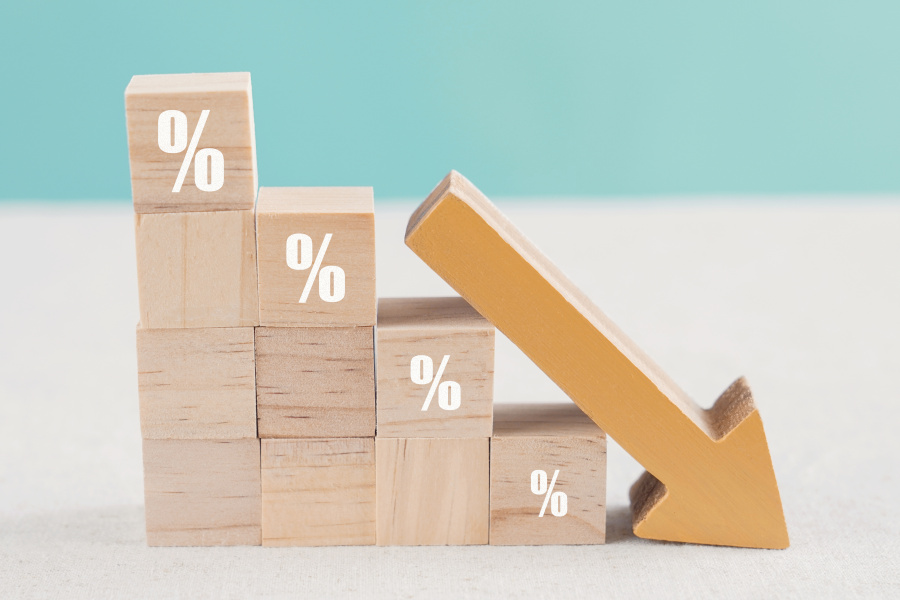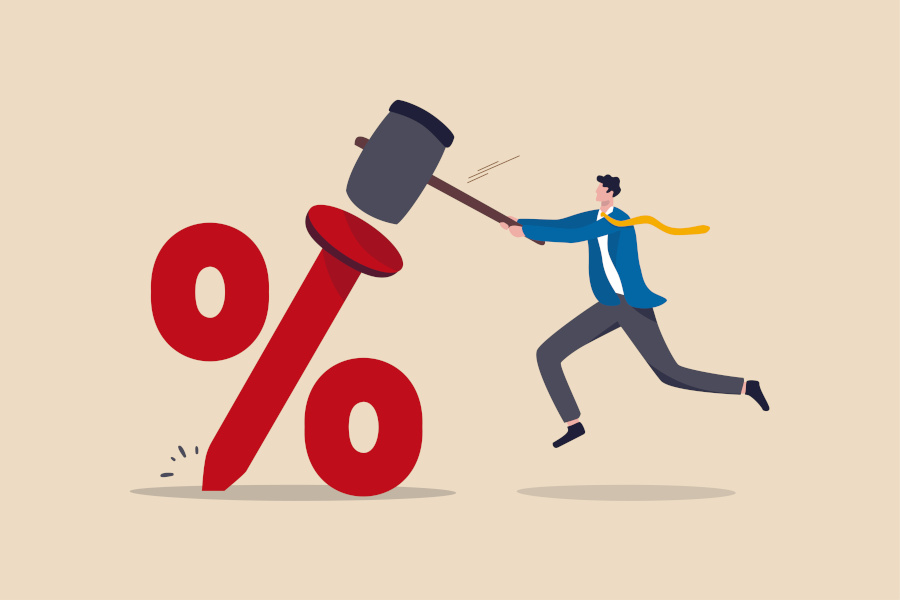5 Ways To Lower Mortgage Interest Rates
Whether you're planning to buy a house or refinancing your current mortgage, there are several ways to lower your interest rate and save money on your home loan. If you're buying a house, the lender will usually offer several different options for financing. For example, you can choose an adjustable-rate mortgage with a lower interest rate than a fixed-rate mortgage but adjusts with market conditions. A fixed-rate mortgage has a higher interest rate but doesn't change over time.
If you're refinancing, getting a better interest rate may be possible by refinancing into an adjustable-rate mortgage instead of keeping your current loan in place. In some cases, combining your existing mortgage with another one can reduce the total amount of interest paid over time and save you money on monthly payments.
Here are some of the ways to lower your mortgage's interest rate:

1. Shop Around For The Best Rate
The first step in getting a lower mortgage interest rate is shopping for the best one. You can contact several lenders and a few Auckland based advisor to ask for their best rates and terms
If you already have an existing mortgage, you may be able to refinance your loan into a new one with better interest rates. Refinancing is a great way to lower your monthly payments or pay off your loan sooner if your credit scores have improved since taking out the original loan. However, it's essential to consider all the costs of refinancing before committing to this option.
2. Pay A Larger Down Payment
Paying a larger down payment is one of the most effective ways to reduce your mortgage interest rate. Lenders will perceive you as less risky when you pay a larger down payment and will likely consider offering you a better rate.
For example, if you're willing to make a down payment of 25% or more on your home purchase, some lending companies will offer low-interest mortgages with lower monthly payments than they would otherwise charge. This can save you thousands of dollars over time while still allowing you to buy a house that meets your needs and budget requirements.
3. Increase Your Credit Score
Your credit score is the most critical factor in determining your mortgage interest rate. Your credit score is a three-digit value representing how likely you are to repay a loan. The higher the score, the less risk you present to lenders. Therefore, your interest rate will be lower.
To get a better deal on your mortgage, you should increase your score as much as possible. The easiest way to do this is by paying off all your outstanding debt monthly and keeping your balances low. You can also take steps to improve your score before applying for a new home loan or refinancing an existing one.
4. Choose A Loan Term Carefully

Many people make the mistake of choosing a mortgage term that's too short or too long. This can lead to an interest rate that's higher than it should be and, eventually, a higher monthly payment.
When you choose a loan term that's too long, you won't be able to save much money on your monthly payment because you'll end up paying more in interest over the life of the loan. On the other hand, if you choose a term that's too short, you may have trouble making payments on time and risk being delinquent on your mortgage.
The best way to decide is by looking at how much money you'll spend in interest for the duration of your loan. If you're trying to get a lower interest rate, then longer terms are better because they allow more time for interest rates to fall while also allowing you to pay off your mortgage faster and save money on interest payments.
But suppose you want smaller monthly payments or don't plan on keeping the house long enough for it to be worth it. In that case, shorter terms might be better for you since they allow lower monthly payments but still give you enough flexibility if things change unexpectedly down the road.
5. Buy Mortgage Points
Mortgage points are prepaid interest that decreases your monthly payment and overall interest paid over the life of your mortgage. This is because instead of paying interest every month on just part of your loan balance, you spend it on all of it upfront with points. This allows homeowners to save money over time because they pay less in total interest than they would without points, even though they'll have a higher monthly payment when first buying their home.
Final Thoughts
If you're looking for a way to lower your mortgage interest rates, this list has shown you many ways to do so. Whether you're looking at refinancing or getting a new loan, you can use this guide as a starting point for your own research.